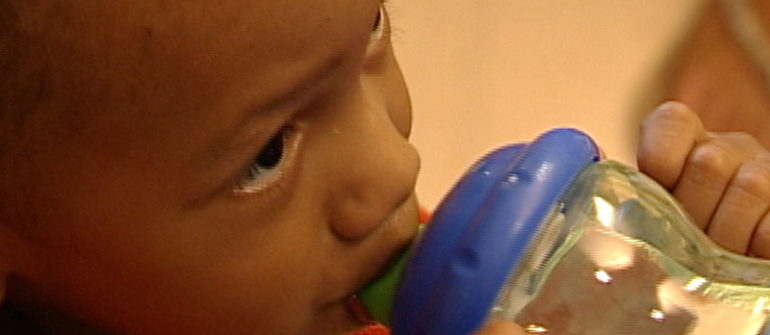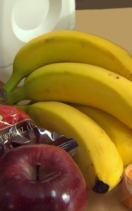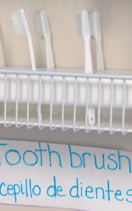Question: I’ve noticed some of the parents of toddlers and young preschool children in my program rarely consider water as an acceptable drink for their children. Can you give me some tips for persuading them to think water first?
According to Gary Rozier, DDS, Professor of Health Policy and Management, University of North Carolina-Chapel Hill, drinking water straight from the tap is important to a child’s overall good health. “A study published in the journal Pediatrics in September 2014 reported that the prevalence of obesity in 6-year-old children was twice as great among children who consumed sugar-sweetened beverages during infancy compared to those who didn’t (17.0% vs 8.6%).
“This study adds to the growing evidence that sugary beverages are linked to increased calories, weight gain and related health conditions, creating a growing public health crisis. According to the latest national statistics 66% of children 2 to 11 years of age consume sugary beverages: primarily soda for adolescents and fruit drinks for children.
“Guidelines for Early Head Start and early childcare settings limit the amount of juice and other sugary beverages. Some programs have eliminated juice altogether. Water is an important substitute for these beverages in early education settings and public schools, and “drink more water” campaigns are springing up in some parts of the country, with support from recent recommendations from The Caring for Our Children, 3rd edition (CFOC3). However, these recommendations specify no water for children younger than 6 months and only limited water up to age 1; formula and milk are best for the under-1 age group. That’s why it’s even more important to brush with fluoride toothpaste with the appearance of the first tooth, because many children under age 1 aren’t getting much beneficial fluoride from water.
“The most common chronic disease in preschool children is tooth decay. In NC, more than one-third of children have experienced tooth decay by the time they enroll in kindergarten; more than half of Hispanic children. Substituting water for sugar-sweetened beverages can not only cut empty calories, but also reduce tooth decay by eliminating the sugar that leads to dental problems.
“Water also is healthy and can actually protect the teeth from decay. Most public water systems in North Carolina have fluoride added as per CDC recommendations. About 88% of North Carolinians using community water systems (6.2 million people) have access to fluoridated water. Simply by drinking water from the tap, most North Carolinians can help prevent tooth decay at no added expense. Studies show that water fluoridation reduces tooth decay by about 25 percent over a person’s lifetime.
“Although widespread, some children in early education programs might not be getting enough fluoride because their home drinking water is not fluoridated (well water). Some people also like to substitute bottled water for tap water. Most bottled water does not have fluoride, but it is difficult to tell because the regulating governmental authority does not require that fluoride be listed on the label.
“So, our recommendation is to ‘Drink more water out of the tap and not the bottle!’ It’s free, affordable and helps fight tooth decay thanks to fluoride.”
For more about bottled water, visit http://www.cdc.gov/healthywater/drinking/bottled/.
Interested in Expert opinions on everything from pregnancy and tooth health to the importance of baby teeth? Click here to see more FAQs, or ask your anonymous question by clicking here.
To see the short, helpful videos on fluoride varnish and toothpaste recommendations, click the Videos tab in the menu.





